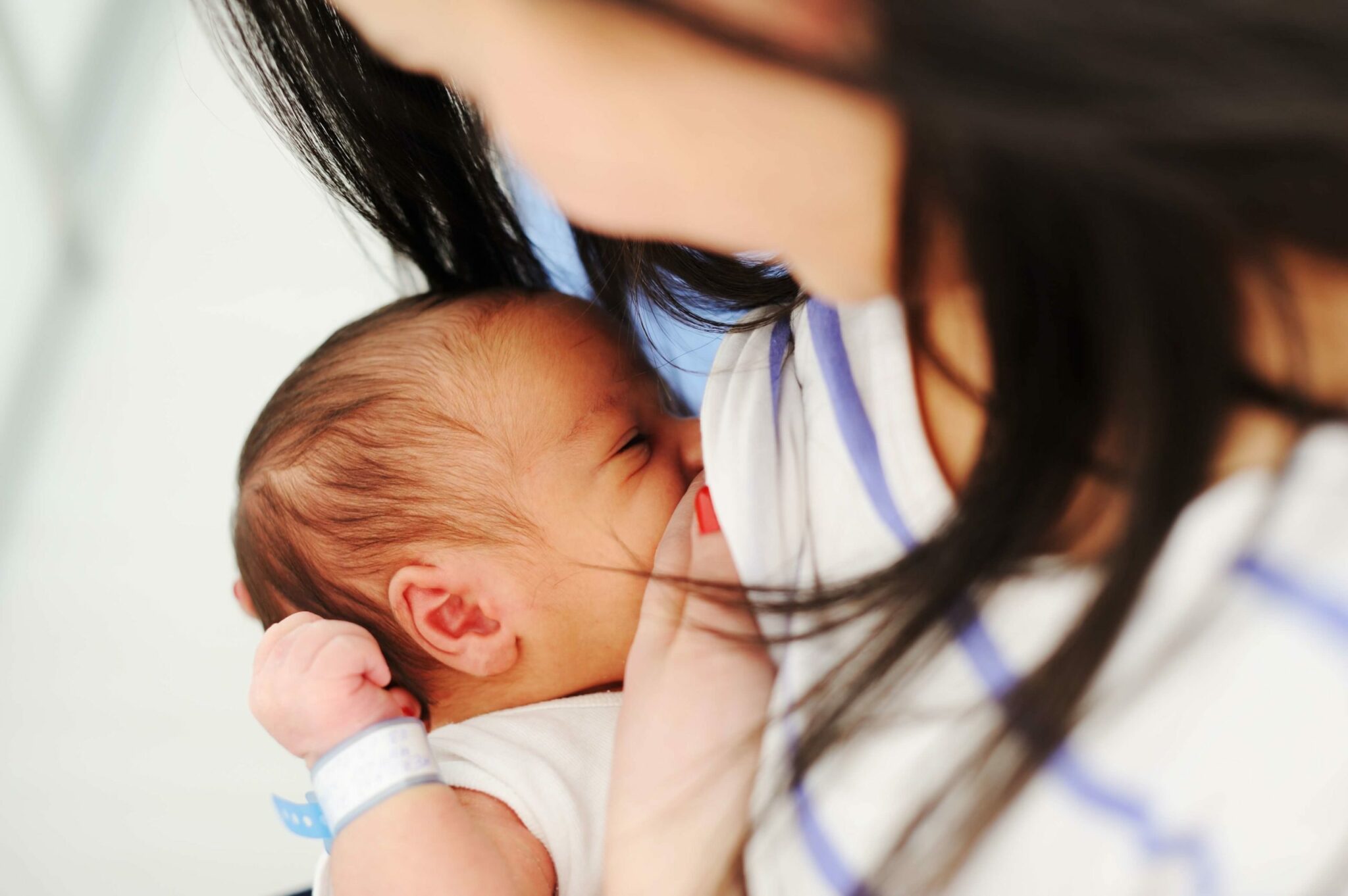الرضاعة الطبيعية…. بين هنا و هناك

I’m writing this as a non-Muslim Brit based out of Dubai. This is worth noting because inevitably my observations (although first-hand) will bear the marks of a person who has been raised in an increasingly liberal, sectarian society. Also worth noting is the fact that, compared to other countries in the Middle East, the United Arab Emirates is extremely accommodating of Western practices, largely on account of there being nine foreign residents to every one Emirati.
That said, I am also the mother of a four-month-old, breastfed baby boy, and I have spent most of the past year in the Middle East. My husband and I moved to Dubai last year shortly after we got married; I spoke at a HealthTech conference in Kuwait when I was five months pregnant; we traveled together as tourists to Egypt and Oman in my seventh month. Our shared love of Arab culture has taken us to Syria, Morocco, Bahrain, Lebanon, Jordan, Tunisia, and back.
And it occurs to me, on the eve of the final day of World Breastfeeding Week 2017, that there are a few things worth mentioning about breastfeeding in the Middle East and North Africa (“MENA”), specifically the differences between “breastfeeding in theory” and “breastfeeding in practice”.
Opinions regarding “breastfeeding in theory” are pretty uniform across the region. The global public health recommendation of breastfeeding a child exclusively for the first six months of its life is widely accepted, on the basis that it provides the child with “optimal nutrition for growth and development together with significant immunological protection”. The dramatic rise in recent years of nutrition-related chronic diseases such as diabetes, obesity and heart disease among the local population has prompted governments across the Middle East – in the UAE, Kuwait, and Lebanon – to call for the active promotion of breast milk over formula. Among Muslims, breastfeeding is an expectation of parents and the Quran recommends that children should be breastfed until the age of two. Indeed, this particular aspect of Quranic teaching was recently enshrined in law in the UAE in 2014.
“Breastfeeding in practice”, however, is a different story. A recent study of Emirati women found that less than 50% of mothers exclusively breastfeed their children by one month of age. Those unfamiliar with the region could be forgiven for assuming that the main reason for this is the fact that breastfeeding in public (i.e. in front of men) is strictly forbidden according to traditional Islamic teaching, which states that a woman is not allowed to expose any part of her body in public except her head, hands, and feet. Women can breastfeed in front of other women, but even then should do so with modesty and discretion. Surely then, most women who introduce +formula, solids, or other liquids to their child’s diet in the first six months do so for the sake of practicality? So as not to be perpetually harassed or wrong-footed in public?
In fact, the reasons given as to why most women do not exclusively breastfeed beyond the age of one month relate more to a lack of proper postnatal support and the failure of employers to accommodate breastfeeding mothers in the workplace. Pre-lacteal or “top up” feeds given in hospital around the time of birth, convenience when returning to work or study, and subsequent pregnancies are among the top reasons listed for discarding breastfeeding early on. Interestingly, socio-demographic factors such as the age of the woman at the time of marriage or birth, family size, and domestic help were not found to be particularly influential.
I have breastfed my son in underground car parks, in public toilets, in the darkened corners of abandoned cafes, and on a speedboat to avoid causing offense in public. On these occasions, my discretion has been more to do with my own personal preference than enforcement by any third party. I have also breastfed openly in malls, restaurants, and on the beach – always using a breastfeeding cover, always with the maximum amount of care and attention to the people moving around me – and only once have I ever encountered a serious objection, and that was on a cramped plane flying from Barcelona to Dubai, where the fact that we were mid-takeoff and the toilets were out-of-action meant discretion wasn’t really an option.
It is apparent, therefore, that what MENA needs is not a lively campaign to protect women’s right to breastfeed in public, as suggested in some Western media outlets in recent months – for most local women, it is a non-issue, and for ex-pats such as myself, respect for cultural norms should take precedent. Instead, local governments should proactively advertise the medicinal benefits of breastfeeding, for both the mother and the child, and oversee the introduction of proper postnatal support – be it longer maternity leave (in Dubai, maternity leave is still just 55 days, of which 45 are paid), information packs specifically targeting mothers in the postpartum period, the introduction of postnatal home visits, and the obligatory provision of proper breastfeeding facilities in public places, including the workplace.










